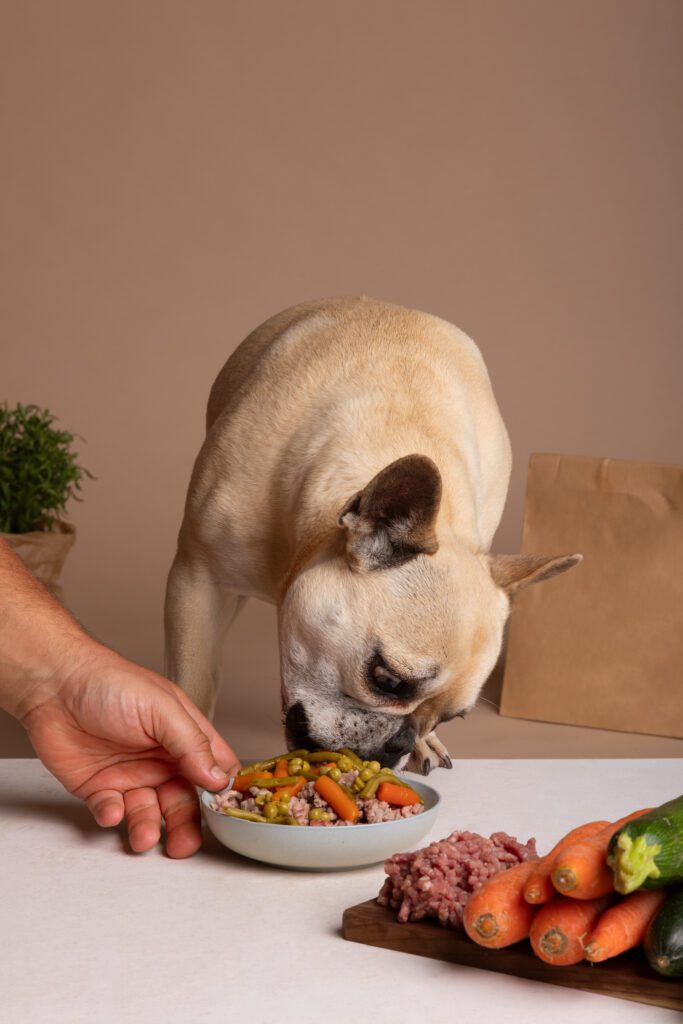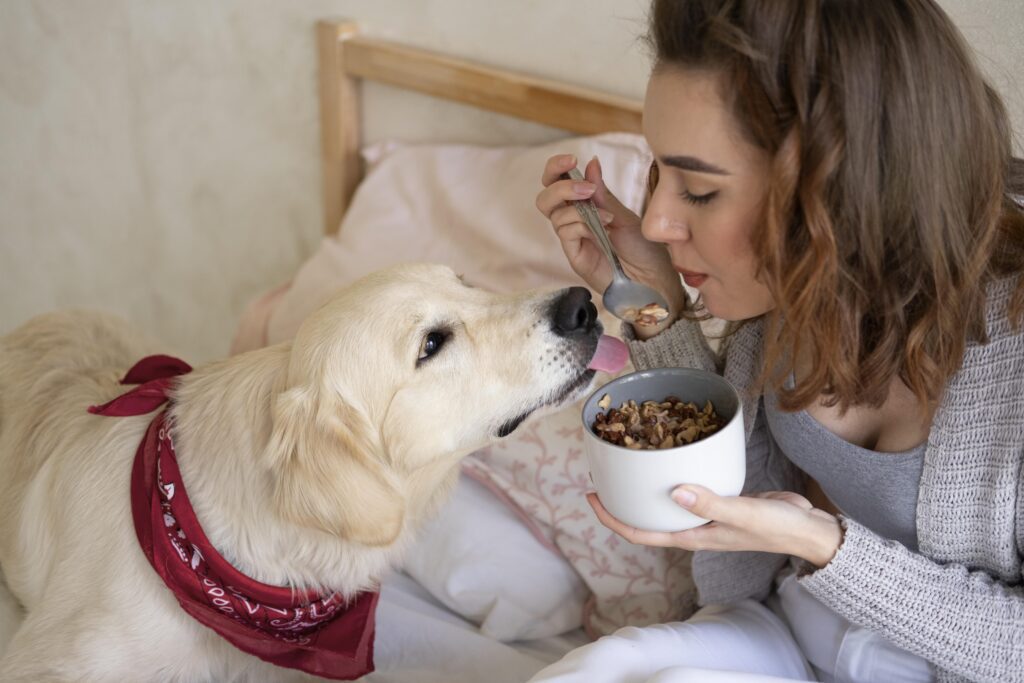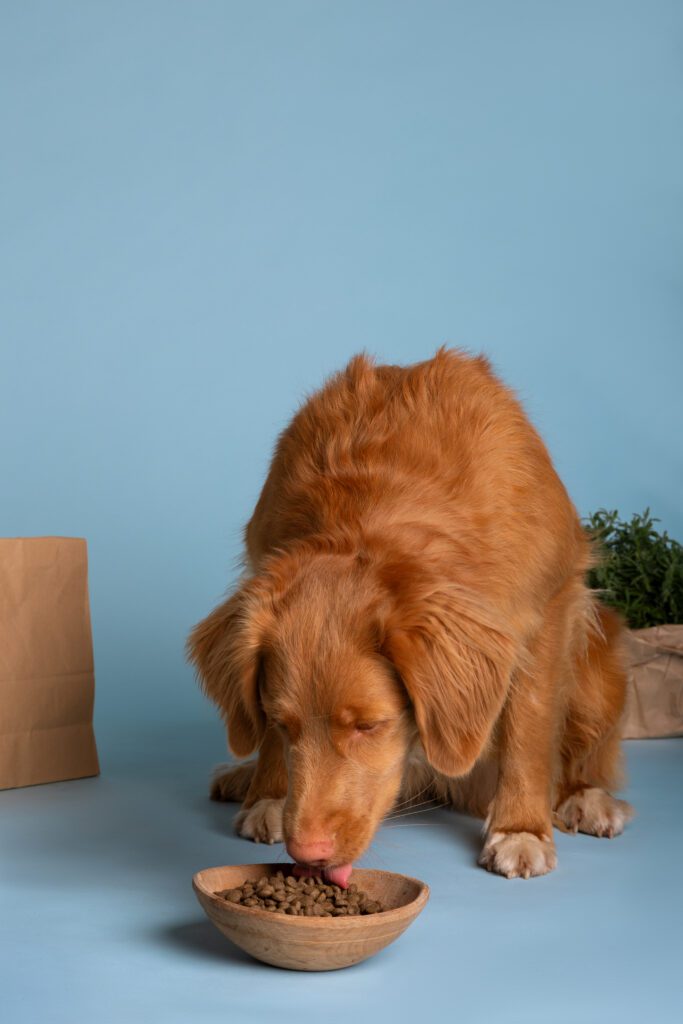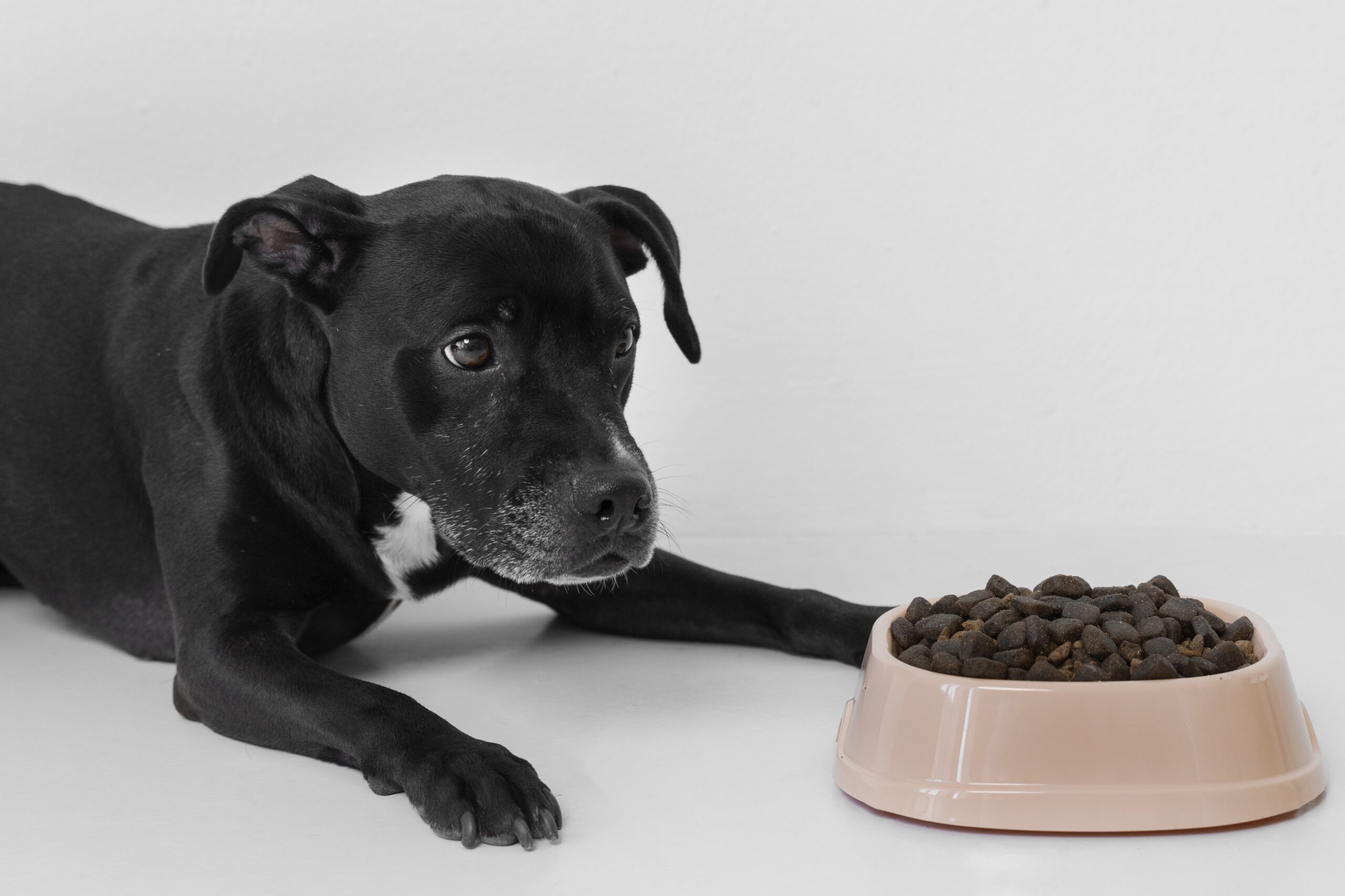Introduction
Every dog owner knows the look—those big, pleading eyes staring up at your plate, hoping for just one bite. But before you share, it’s important to know which foods are safe and which can be harmful. Some human foods are dangerous for dogs, while others can actually boost their health. The trick is to stick to moderation and pick the right ingredients.
Here are Top 10 human foods dogs can eat safely, enjoy—each loaded with nutrients that help keep them energetic, shiny, and healthy.
1. Peanut Butter
Dogs love peanut butter—and it’s not hard to see why. It’s delicious, high in protein, and full of healthy fats. A small spoonful can be a treat, a way to hide medicine, or a fun filler for toys like Kongs.
Make sure to use unsalted, xylitol-free peanut butter. Xylitol is toxic to dogs and can cause dangerous drops in blood sugar or liver problems.
Peanut butter provides vitamin E, niacin, and good fats that keep your dog’s coat shiny and skin healthy. Just keep portions small—about a teaspoon at a time—since it’s high in calories. Too much can lead to weight gain. Try spreading it on a carrot stick or using it as a training reward.
2. Cooked Chicken
Cooked chicken is one of the best protein sources for dogs. It’s lean, easy to digest, and great for building muscle. You can serve it plain, shredded over kibble, or as part of a homemade meal.
Avoid raw or seasoned chicken. Raw meat can carry salmonella, and spices like garlic or onion are toxic to dogs. Stick with plain boiled or baked chicken breast.
Chicken is packed with B vitamins and omega-6 fatty acids that help maintain healthy skin and a shiny coat. For dogs with upset stomachs, mix a little boiled chicken with rice—it’s gentle and soothing.
Just don’t overdo it; too much chicken can unbalance your dog’s diet.

3. Carrots
Carrots are crunchy, sweet, and low in calories—perfect as a guilt-free treat. They’re full of beta-carotene, which turns into vitamin A and supports good vision and a strong immune system.
Chewing raw carrots can also help clean your dog’s teeth by reducing plaque. For older dogs, you can steam or boil them until soft.
They’re great as training snacks or a light, healthy reward. You can chop, shred, or freeze them for a cool summer treat. Just keep portions moderate; too much vitamin A over time isn’t good for dogs.
4. Apples
Apples make a refreshing, crunchy snack for dogs. They’re rich in vitamins A and C and contain fiber that supports digestion.
Always remove the core and seeds—apple seeds contain trace amounts of cyanide, which can be harmful over time. Cut apples into small pieces for easy chewing.
Apples also help freshen your dog’s breath and clean their teeth a bit. A few slices a couple of times a week is plenty. Too much fruit can upset their stomach because of the natural sugar.
5. Pumpkin
Pumpkin is amazing for dogs, especially for digestion. It’s full of fiber, vitamin A, and potassium, which help with bowel regularity and gut health.
Use plain, unsweetened canned pumpkin—never pumpkin pie filling, which has sugar and spices. Mix a spoonful into their food or freeze small portions for later.
Pumpkin can also help dogs feel full, making it great for weight control. It’s rich in antioxidants that support the immune system and coat health.
A tablespoon a day for small dogs (and a few for larger ones) is usually enough.
6. Oatmeal
Oatmeal is safe and healthy for dogs when prepared correctly. It’s rich in soluble fiber, making it great for dogs with sensitive stomachs or irregular digestion. It also provides vitamin B and linoleic acid for skin and coat health.
Always cook oatmeal plain—with water, not milk—and skip the sugar or flavorings. Instant packets often have salt or artificial sweeteners that are unsafe for dogs.
Mix a couple of spoonfuls into your dog’s food for an occasional boost. It’s soft, easy to chew, and gentle on the stomach, especially for older dogs.
Just don’t serve it daily; oatmeal is calorie-dense, so it’s best as an occasional treat.

7. Eggs
Eggs are a fantastic source of protein, amino acids, and healthy fats. They support muscle growth and promote a shiny coat.
Always serve eggs cooked—scrambled, boiled, or poached—with no oil, salt, or butter. Raw eggs can carry salmonella and interfere with nutrient absorption.
For small dogs, half an egg is plenty. Larger dogs can have a whole egg occasionally. Eggs also provide vitamin D, iron, and selenium, which help with strong bones and immunity.
Just don’t feed them too often, as too many eggs can add extra fat and cholesterol.
8. Blueberries
Blueberries are small but packed with antioxidants, fiber, and vitamins C and K. They support your dog’s immune system and brain health and can even help slow aging effects.
They’re great as training treats, either fresh or frozen. Frozen blueberries make a nice cooling snack on hot days or for teething puppies.
Antioxidants help fight inflammation and improve memory and coordination, especially in older dogs. A few blueberries at a time are plenty—too many can upset the stomach.
9. Green Beans
Green beans are an awesome option for dogs that need to lose a few pounds. They’re low in calories but high in vitamins A, C, and K, plus iron and calcium.
Serve them raw, steamed, or but high in vitamins A, C, and K, plus iron and calcium.
Serve them raw, steamed, or cooked—but skip the salt, butter, and seasoning. They can be mixed into regular meals or used as crunchy treats.
Their high fiber content keeps dogs feeling full and helps with digestion. They also contain antioxidants that fight inflammation.
Introduce them slowly to avoid stomach issues from too much fiber too quickly.
10. Sweet Potatoes
Sweet potatoes are one of the healthiest foods you can share with your dog. They’re packed with fiber, vitamins A and C, and potassium—all great for digestion, vision, and immunity.
Always serve them cooked and plain—boiled, baked, or steamed. Raw sweet potatoes can be hard to digest and may cause blockages.
Their natural sweetness makes them popular with picky eaters, and they’re gentle on sensitive stomachs. You can mash them, cube them, or make chewy dried treats.
Feed small portions once or twice a week to get the benefits without adding too many carbs.

Conclusion
Feeding your dog certain human foods can be healthy—as long as you pick the right ones. Peanut butter, chicken, carrots, apples, pumpkin, oatmeal, eggs, blueberries, green beans, and sweet potatoes are all safe, nutritious choices.
Keep portions small, avoid seasoning, and introduce new foods slowly. If your dog shows any signs of allergies or digestive upset, stop and talk to your vet.
With the right balance, these human foods can help keep your pup healthy, happy, and full of tail wags.
FAQs
1. Can dogs eat rice?
Yes! Plain cooked white or brown rice is safe and easy to digest. It’s often used for dogs with upset stomachs.
2. Are bananas safe for dogs?
Yes, in moderation. Bananas are full of potassium and vitamins, but too much sugar can cause issues.
3. What foods should dogs never eat?
Avoid chocolate, grapes, raisins, onions, garlic, avocados, and anything with xylitol—these are toxic.
4. How often can dogs eat these foods?
Treat these as occasional extras—no more than 10% of your dog’s daily diet.
5. What signs mean a dog can’t tolerate certain foods?
Watch for vomiting, diarrhea, itching, or gas. If you notice any of these, stop feeding the new food and call your vet.
Also read related article on why dogs run away.
